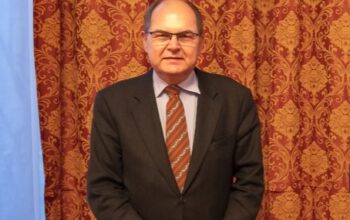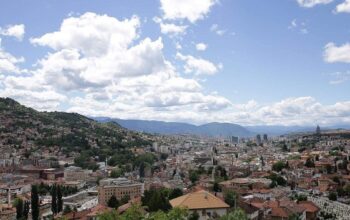In early April of this year, recognizing that BiH-level authorities had no intention to make necessary changes to the law governing the provision of personal identification numbers, lawmakers in Republika Srpska passed their own law on the matter. Though not an ideal solution, the measure would have at least protected RS residents until a BiH-wide solution could be reached. But instead of welcoming the move, representatives of the international community in BiH condemned the RS for supposedly overstepping its bounds. While lawmakers in the Federation and in Sarajevo dawdled, the RS had done something concrete, and was criticized for it.
In the first week of June, hundreds of BiH citizens took to the streets of Sarajevo and other cities to protest their leaders’ failure to adopt an updated ID law. The international community immediately voiced its support for the protesters, and chided BiH lawmakers for failing to “do their jobs.” High Representative Valentin Inzo, never one to be restrained by the boundaries of diplomacy or professionalism, even went into the street himself to express his support for the protesters in person. While protesters blockaded the houses of parliament, Inzko and other foreigners railed against the “out of touch” politicians inside.
Finally, on July 17, the BiH Council of Ministers agreed upon a draft of the ID law and several other crucial administrative laws. The measures passed through the House of Representatives in record time, without any further outside intervention. But one week later, SDA party members in the BiH House of Peoples blocked the new laws, saying that the speedy manner of their passage somehow violated the “vital national interest” of Bosniaks.
When any caucus within the House of Peoples challenges a law on this basis, the only way to move forward is a successful challenge by other members in the Constitutional Court. The bill can move forward if the challenge succeeds but there can be a long delay until the Court renders a decision. The SDA has used the vital interest mechanism repeatedly in the Federation parliament, delaying a number of important laws there. By invoking the vital interest principle in this case, the SDA has managed to add at least another two months and probably much longer to what has already been an intolerable delay in the passage of the ID law. But mysteriously, few in the international community have spoken up against this blatant abuse of parliamentary procedure. Those few have not singled out the responsible party, the SDA.
The frustration of BiH citizens is completely justified. The double standard behind the international community’s response, however, is not. In April and May, the ID law deadlock was portrayed as yet another struggle between the RS and Sarajevo. The High Representative and other foreign powers could comfortably criticize the Serbs for refusing to compromise—a familiar, though inaccurate, response. But now that the entire legislative process is being held hostage by The SDA—the same SDA that has paralyzed the political system in the Federation—those critics are silent.


